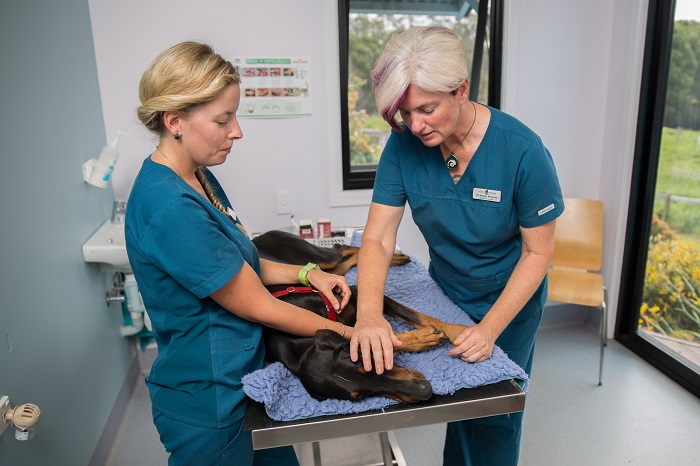Acupuncture
"It does not matter whether medicine be old or new, so long as it brings about a cure. It matters not whether theories be eastern or western, so long as they prove to be true." Jen Hsou Lin, DVM, PhD
Why Use Acupuncture?
Acupuncture is used by Dr Megan at Vitality Vetcare, Bangalow, because it can be a safe and effective therapy to improve animal health and well-being. Acupuncture has helped many animals have a more healthy and active life, especially in older age. It may be used on its own or with other integrative therapies or conventional medicine and surgery.
What is Acupuncture?
Acupuncture is the insertion of fine needles through the skin into specific points for the treatment and prevention of disease. It is one of the oldest forms of veterinary medicine in the world with livestock being treated in China for over 3000 years. Acupuncture is part of the system of Traditional Chinese Veterinary Medicine that includes moxibustion, herbal medicine, nutrition, Tui Na massage and other techniques.
What conditions can be treated with Acupuncture?
Acupuncture is part of a complete medical system known as Traditional Chinese Medicine. Acupuncture may be used for a wide range of acute and chronic conditions. It is most well know for the treatment of muscle, joint, nerve and spinal problems. It can also help animals with immune, digestive, kidney, heart, respiratory, skin, urinary, reproductive and behavioural disorders. It may be used on its own or integrated with herbal or conventional medicine and surgery. It may also be used when an animal cannot tolerate its medication or where the medication is providing limited benefit. Like all therapies, acupuncture is not a cure-all but it can work well when it is indicated.
Is Acupuncture painful?
Acupuncture needles are very fine with rounded tips so they glide through the skin rather than cut it like a hypodermic needle. This is especially the case with the Japanese style needles we use at Vitality Vetcare. People may feel a brief needling sensation which may be described as tingling or burning and presumably animals can experience a similar needling sensation. Most animals accept acupuncture readily and relax and enjoy the attention. Some animals fall asleep during an acupuncture treatment. Rarely, an animal doesn’t like it and other treatment may be chosen if necessary.
Many Years of Experience
Dr Megan completed the International Veterinary Acupuncture Society 2-year course in Veterinary Acupuncture in the UK in 2001. She first started to learn and practice acupuncture 6 years before this whilst working for one of the first vets to practice acupuncture in the UK. Since then she has continued to learn and develop her skills as a veterinary acupuncturist and is a member of the Australian Veterinary Acupuncture Group.

